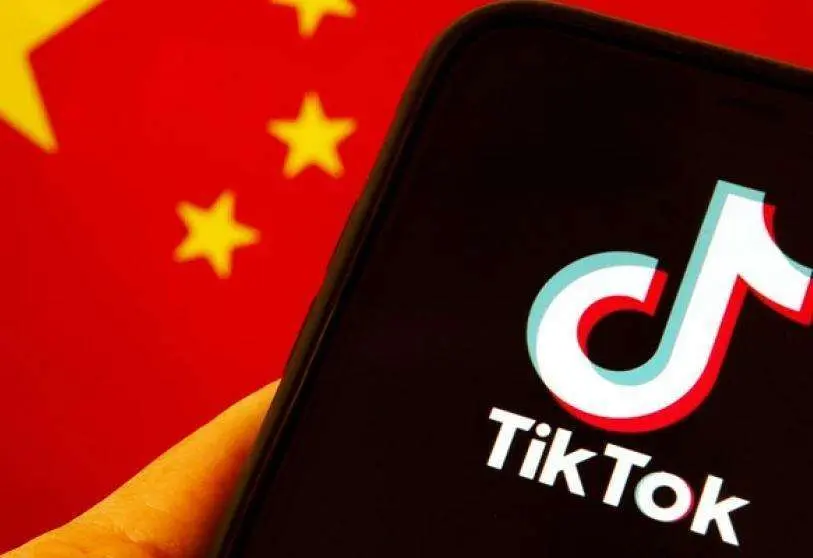Tik Tok, a weapon of Chinese espionage?

From Washington to Brussels, and including media outlets such as the BBC, the Chinese social network Tik Tok generates mistrust. The use of data and cybersecurity is one of the main concerns of more and more countries and companies due to the suspicion that ByteDance, the parent company of Tik Tok, based in Beijing and allegedly linked to the Chinese communist regime, spies on users who download the application.
And the bad reputation precedes it. In December, an interim investigation by ByteDande confirmed that several Tik Tok employees spied on and got hold of the private data of US journalists. But the suspicion that Tik Tok could be dangerous for security was already foreshadowed by India, following a border clash with Beijing in 2020 for which New Delhi did not hesitate to ban the use of the app and others like it across the country. "They are engaged in activities that are prejudicial to India's sovereignty and integrity, defence of India, security of the state and law and order," the Indian IT ministry justified in a statement. Since then, the list of institutions, companies and governments questioning the reliability of the network has continued to grow.
That same year, the then president of the United States, Donald Trump, joined the ban on Tik Tok and We Chat in the country, and although he was denied by the courts and Joe Biden's resounding "no", the debate is still on the table today. The use of the application has already been banned for all civil servants in the country, and there are now plans to extend the veto to the rest of the population. Canada, New Zealand, Belgium, Denmark and now France have already joined in.

In other cases, the veto is in process. The Netherlands has not yet banned Tik Tok, but recommends its civil servants not to use the app on professional devices. In the UK, the ban is almost a done deal "given the particular risk around government devices that may contain sensitive information, it is prudent and proportionate to restrict the use of some apps," Minister of State Oliver Dowden told parliament. In addition to warnings from the European Commission and Parliament.
On 28 February, the European Parliament asked its staff to uninstall the short video app for security reasons, days after the European Commission and the Council of the European Union did the same. Not without warnings. A month earlier, the bulk of Brussels met with the company's CEO, Shou Zi Chew, to express the intention to ban the use of Tik Tok across the EU if it does not prevent users' data "being transferred to other countries".
The BBC has become one of the first public news organisations to veto the platform for its staff, setting a precedent. The message was clear: "we do not recommend the installation of Tik Tok on BBC corporate devices unless there is a justified reason". If there is not, the app "should be deleted".
Fears that the data will be shared with the government have been growing steadily, to the point where it has been deemed by US Secretary of State Antony Blinken as a "threat" to security that "must end one way or another". According to The Wall Street Journal, Washington has even threatened the company to ban the platform domestically if it does not sell its shares. China has responded.
The leader of US diplomacy made these statements before a House of Representatives committee on the same day, 23 March, that lawmakers were considering a possible veto of the platform. And attributing courtroom overtones, the company's CEO, the aforementioned Shou Zi Chew, defended the reasons for Tik Tok's continued operation in the country.
TikTok's CEO, Shou Chew, faced over five hours of questioning from lawmakers of the House Energy and Commerce Committee, reflecting their distrust of the popular video app over its ties to China, data practices and the app's potential effects on children. https://t.co/QctiF4yaXj pic.twitter.com/CwzDS6xNBU
— The New York Times (@nytimes) March 23, 2023
Under crushing questioning from congressmen about Tik Tok's ties to the Chinese government, cybersecurity and harmful effects on minors, the CEO claimed to have invested millions of dollars to ensure users' privacy and data. Chew also denied any relationship with Xi Jinping's government. "ByteDance is not owned or controlled by the Chinese government. It is a private company," he said.
But the litmus test of the hearing for Tik Tok was not passed with flying colours. Chew did not convince the committee and they are now evaluating what to do with the platform, while the future of the app is irretrievably darkening. The Chinese government, the main protagonist in the dispute, has been outspoken, accusing the US of abuse of power. According to Beijing, the US "crackdown" on Tik Tok "violates market principles".
But if the Chinese application has had so many uncertainties, it is because both Brussels and Washington have linked it to the roadmap set out at the NATO summit in Madrid. In the Atlantic Alliance's 'new strategic concept', China was singled out for the first time as a 'challenge' and 'major systemic rival'. And that can affect an application that is consumed by more than a billion people worldwide.










